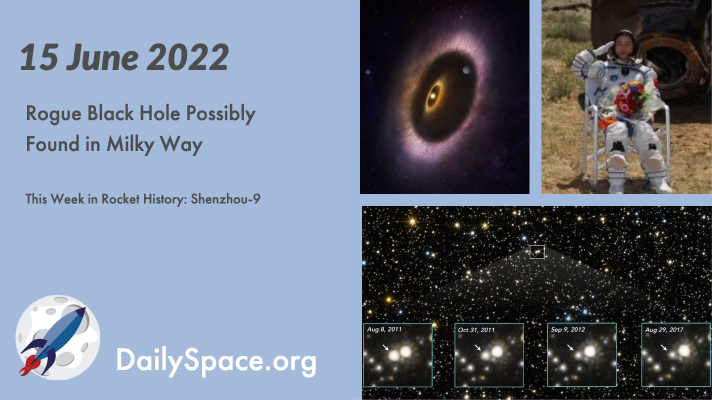
Jun 16, 2022 | Black Holes (Stellar), Crewed Space, Daily Space, Exoplanets, Moon, Random Space Fact, Rovers, Space China, Space History, Spacecraft, Stars, Venus
After six years of Hubble Space Telescope observations and the hypothesis that millions of black holes exist in the Milky Way, scientists have finally found direct evidence for the existence of one such black hole. Plus, planetary formation, a wandering star, and this week in rocket history, we look back at China’s first crewed space station docking.
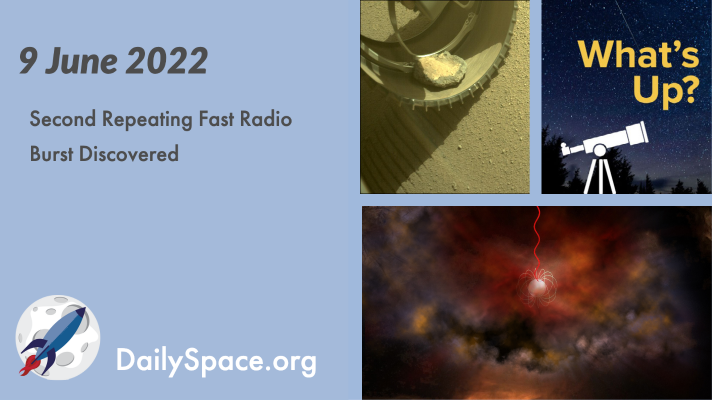
Jun 10, 2022 | Daily Space, Fast Radio Bursts, JWST, Mars, Neutron Stars / Pulsars, Perseverance, Rockets, Sky Watching, Space Policy, Spacecraft, SpaceX, Starlink
A second repeating fast radio burst was detected in 2019 by China’s FAST observatory and confirmed in 2020 by the Very Large Array. This latest discovery raises the possibility that there are two different types of FRBs. Plus, a SpaceX commercial launch, mission updates, neutron stars, and this week’s What’s Up.
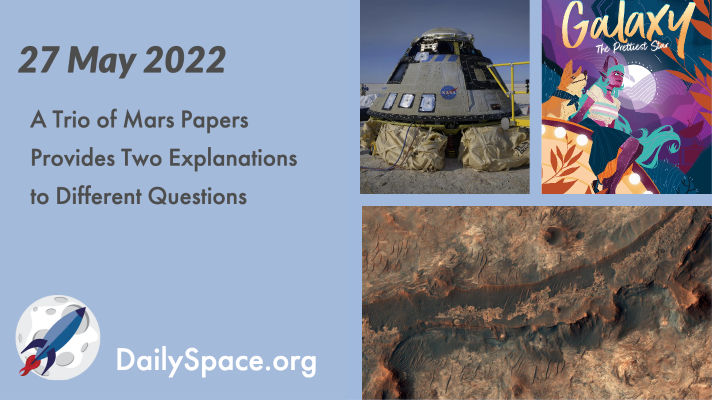
May 31, 2022 | Crewed Space, Daily Space, Earth, ESA, Mars, Perseverance, Review, Rockets, The Sun
Today, we take a look at three recent papers attempting to explain various phenomena on Mars. One uncovers the cause of discrete aurorae. Another explains the martian haze. And a third actually ends up with more questions than answers. Plus, Boeing’s OFT-2 returns to Earth, ESA’s Solar Orbiter makes its closest approach, and Dr. Pamela reviews the new graphic novel “Galaxy: The Prettiest Star” by Jadzia Axelrod.
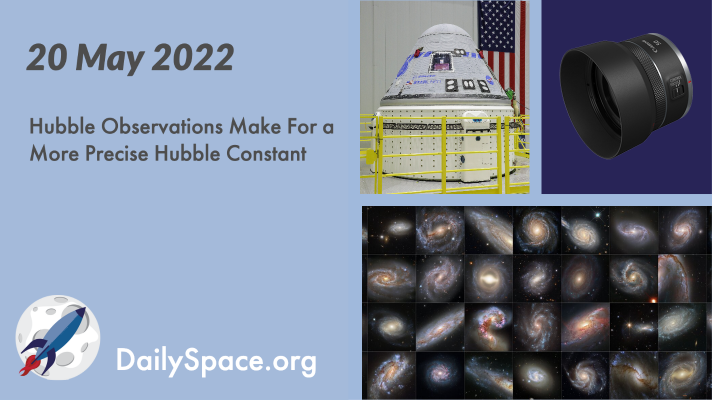
May 21, 2022 | Crewed Space, Daily Space, Galaxies, Mars, Review, Rockets, Rovers, Spacecraft, Stars, Supernovae
Over the past three decades, astronomers around the world have been using the observations of the Hubble Space Telescope to more precisely calculate the expansion of the universe. And they have converged on a precision of just over 1%. Plus, Boeing launches Starliner, Voyager 1 struggles, and Erik reviews his favorite camera lens.
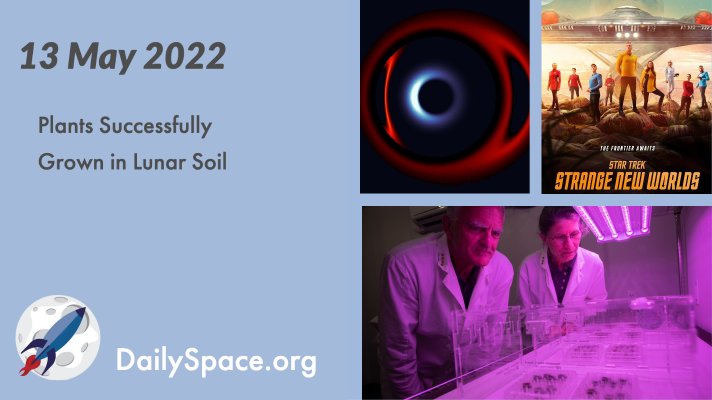
May 16, 2022 | Astrobiology, Daily Space, Earth, Exoplanets, Kepler, Mars, Moon, Review, Supermassive Black Holes, Supernovae, Zhurong
Using a mere twelve grams of lunar soil returned by the Apollo missions, scientists have successfully grown plants in the lab. With a wealth of genetic data on hand, they can now analyze the changes to the plants and the soil. Plus, stellar cannibalism, a black hole merger, brown dwarfs, water on Mars, and a review of “Star Trek: Strange New Worlds”.
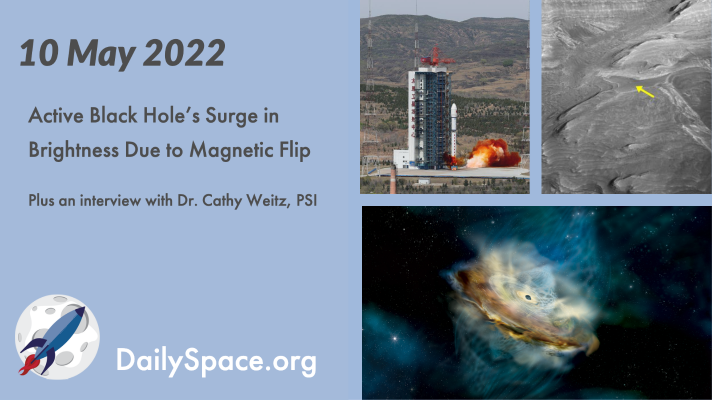
May 11, 2022 | Active Galaxies, Asteroids, Citizen Science, Daily Space, Galaxies, Guest Interview, Mars, Perseverance, Rockets, Space China, Spacecraft, SpaceX, Starlink, Supermassive Black Holes
A luminous black hole already classified as an active galactic nucleus brightened suddenly in recent ground and space observations, and the cause may be due to a sudden flip in the magnetic poles. Plus, community science, rockets, Ingenuity, and an interview with Dr. Cathy Weitz from Planetary Science Institute.








 We record most shows live, on Twitch. Follow us today to get alerts when we go live.
We record most shows live, on Twitch. Follow us today to get alerts when we go live.